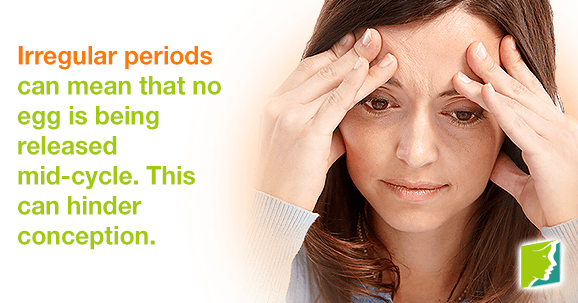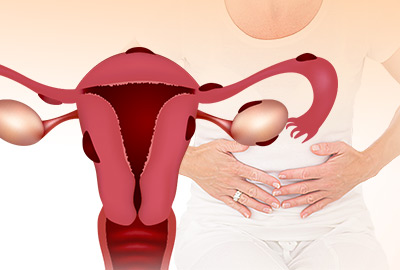Irregular periods can be the result of ovulation dysfunction. If you're experiencing only minor irregularities when you get your period, there is no need to be concerned. Yet, many women experience chronic irregularity when it comes to their menstrual cycle, which can be particularly frustrating when trying to conceive.
If your periods are often irregular, or you have gone quite a long time between periods, it's best to see a doctor, since it could be a sign of an underlying condition.
The Link between Ovulation and Irregular Periods
Two types of abnormal ovulation patterns exist. The first is anovulation - the absence of ovulation. The second is oligovulation, in which the woman may ovulate, but may not do so every month and timing may be hard to predict. Both patterns in ovulation can cause irregular periods and make it difficult to predict when a woman will be ovulating. Ovulation can be disrupted when the body does not release an egg or produce sufficient amounts of progesterone. Since the hormone progesterone plays a large role in regulating your menstrual cycle, irregular periods may be experienced.
How Does This Affect the Chances of Getting Pregnant?
There are several reasons that conceiving may be a challenge when a woman is experiencing abnormal ovulation. These are:
Anovulation. This means that there is no egg to fertilize.
Oligovulation. This means that a woman ovulate less frequently, giving her fewer opportunities to get pregnant.
Irregular ovulation. When this happens, unhealthy eggs may be released, which can reduce the chance of implantation.
One third of fertility cases are caused by male infertility, one third by female infertility, and another one third are unknown or caused by a combination of the man and the woman. It is important to talk with your doctor and partner if you feel you are having fertility problems.
More Reasons a Woman May Not Ovulate
Ovulation problems can be caused by other factors.
Being overweight or underweight can lead to hormone disorders that can cause a woman to not ovulate or ovulate irregularly.
Certain medication can affect the hormones in a woman's body and disrupt her ovulation cycle.
Polycystic ovary syndrome (PCOS) is a hormonal disorder that causes enlarged ovaries with cysts that form on the edges of the ovaries. One of the symptoms of PCOS is irregular or no ovulation.
Thyroid disorders, such as an overactive thyroid or an underactive thyroid, can disturb ovulation because both conditions create problems with the levels of hormones in the body.
Premature ovarian failure (also known as premature menopause) is when a woman's ovaries stop working before she turns 40, causing her to stop ovulating.
Some causes of irregular periods and abnormal ovulation may be solved by making lifestyle changes. Talk with your doctor, who can help determine the best plan for you.
Sources
- Office on Women's Health. (2012). Infertility fact sheet. Retrieved from https://www.womenshealth.gov/publications/our-publications/fact-sheet/infertility.html#a
- American Pregnancy Association. (2015). Ovulation FAQs. Retrieved from http://americanpregnancy.org/getting-pregnant/ovulation-faq/
- National Health Service UK. (2014). Overactive thyroid. Retrieved from http://www.nhs.uk/conditions/Thyroid-over-active/Pages/Introduction.aspx




